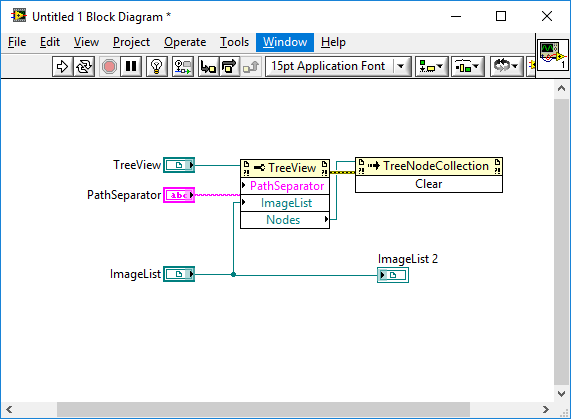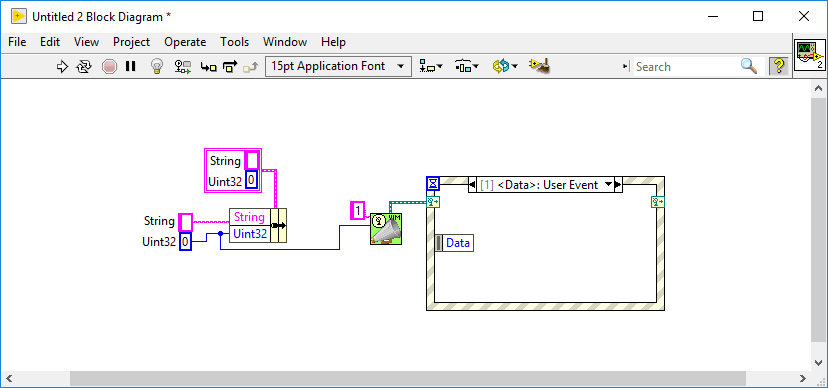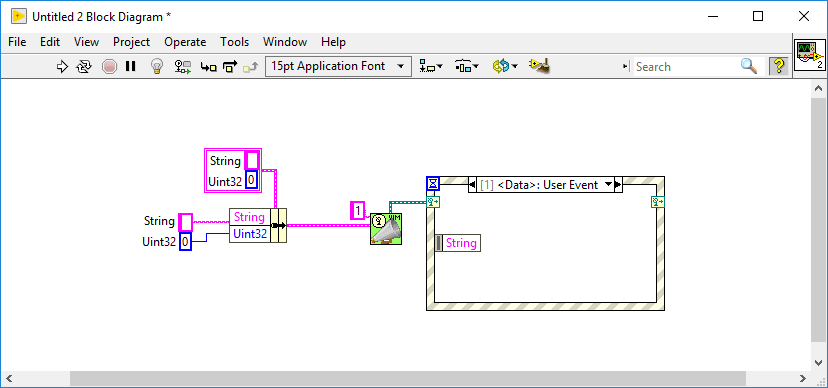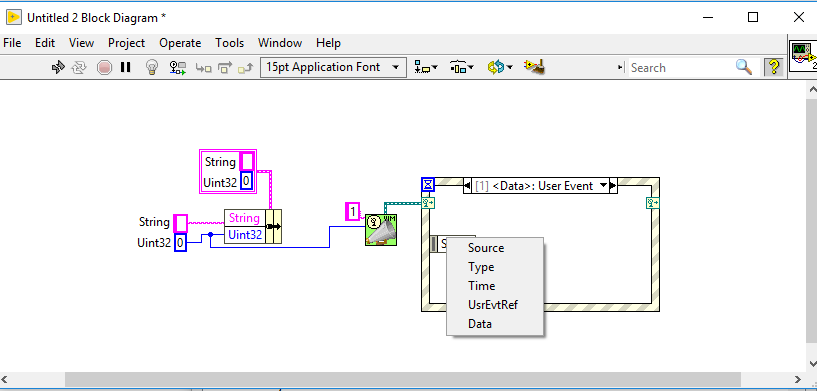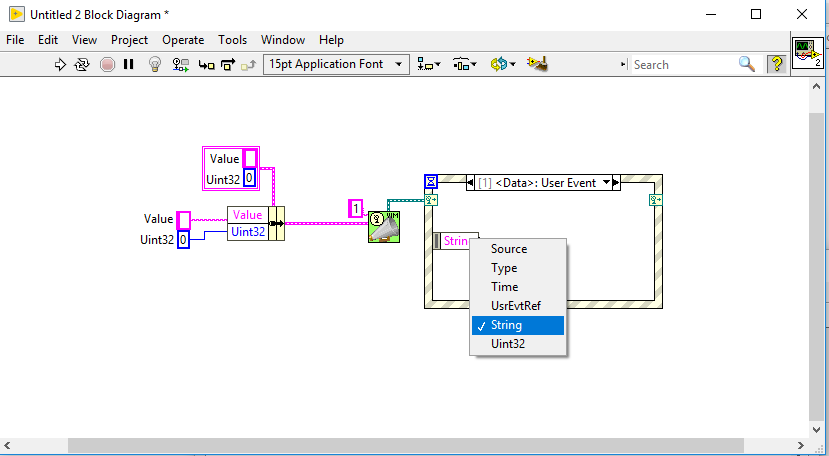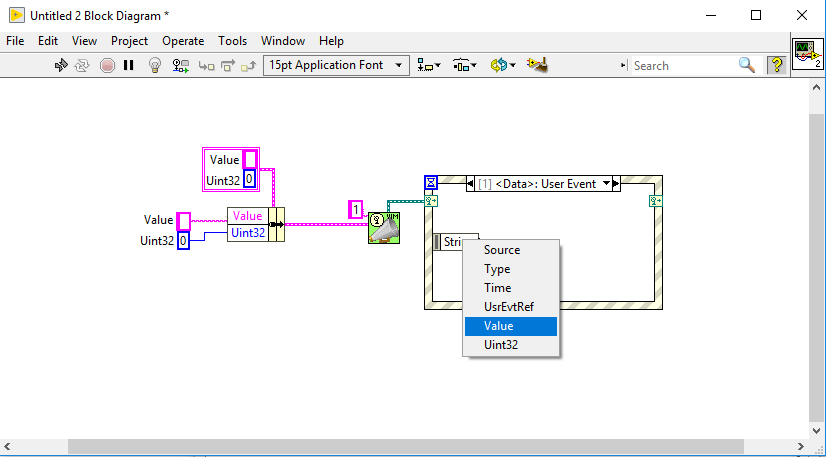-
Posts
4,989 -
Joined
-
Days Won
311
Content Type
Profiles
Forums
Downloads
Gallery
Everything posted by ShaunR
-

Is a baked-in Actor Framework on the drawing board?
ShaunR replied to Bob W Edwards's topic in Object-Oriented Programming
It was a gentle reminder of a question I asked you a couple of months ago So will the distributed LabVIEW OpenSSL binaries be updated to 1.1.x anytime soon? (that's the version minimum to support TLS1.3) Can anyone confirm the version in the Beta? To be honest. I'm surprised you aren't one of "The Powers". You've done your time and given impeccable service. -
Yes. It's part of the protocol and has service and resource discovery. Nope.
- 72 replies
-
- networkcommunications
- datasocket
-
(and 1 more)
Tagged with:
-
That was my takeaway too (udp vs tcp). However. I've been working with LoRa recently (they just launched a couple of satellites) so my choices were MQTT or COAP to run on ESP8266 and ESP32s. I'm considering COAP mainly for the discovery aspect (which MQTT doesn't have but you can kind of make your own by having a topic to annouce to). The UDP aspect might come into its own if they enable UDP Multicast over the internet as standard though.
- 72 replies
-
- networkcommunications
- datasocket
-
(and 1 more)
Tagged with:
-

Is a baked-in Actor Framework on the drawing board?
ShaunR replied to Bob W Edwards's topic in Object-Oriented Programming
Hopefully TLS1.3 -
Indeed. It does have some useful features though like congestion control targeted at small packets and discovery. Seems to be more performant too.
- 72 replies
-
- networkcommunications
- datasocket
-
(and 1 more)
Tagged with:
-
Do you have (or have you ever) installed Visual Basic on that machine? That gives the controls and a licence to use them.
-
Looks like users are expecting it to solve their version control (or lack thereof) problems. I don't think NI should be entertaining that for a package builder.
-
I saw a document about migrating from mscomctl to windows.forms (which is.NET). It mentioned the iTreeview and installing the VB runtime made available Microsoft Treeview in the Active X dialogue box.However. Trying to select it resulted in a dialogue saying it wasnt licenced. ¯\_(⁰͡ ͜ʖ⁰͡ )_/¯ Looks like you'll have to replace all the ActiveX containers with .NET containers.
-
mscomctl is part of the Visual Basic run-time. You might try installing that IF iTreeview is actually part of it (are you sure it is?)
-
It was probably registered as part of a 3rd party installer on the original platform. If you don't have that then you will need to find the activeX DLL (and it's dependencies) on the original machine, copy them over, and manually register it. Then keep your fingers and toes crossed.
-
We can cope with that. In fact. We can cope with UTF 8 everywhere except the front panels. UTF8 LV80.vi
-
NIPM is the odd one out. The rest are all zip files (including Github) but NIPM is multi-wrapped GZip and the zlib wwrapper we all use doesn't support it out of the box. I can already install all them (VIPM, GPM, raw zipped archives, Github, Sourceforge etc) except the NI one. But whilst looking at that I investigated SystemLink. That is the way forward, IMO - being able to manage addons, programs and installs from there and push them out if necessary (either from the cloud server or your local server). I'm very impressed with SystemLink and think it's an industry game-changer. About time too I never understood why they went for the JKI one in the first place. I moaned like hell when they first said that the JKI one was to be NIs preferred solution. So I guess they are only about 7 years late.
-
Aren't all the addon installers (VIPM, GM and the one I was playing with) about to be made reduntant with the NI Installer now it supports addons?
-

Coining a phrase: "a left-handed scissors feature"
ShaunR replied to Aristos Queue's topic in LabVIEW General
-

Coining a phrase: "a left-handed scissors feature"
ShaunR replied to Aristos Queue's topic in LabVIEW General
-

Coining a phrase: "a left-handed scissors feature"
ShaunR replied to Aristos Queue's topic in LabVIEW General
It's easy to be cavalier with other peoples privacy and security. If you haven't learnt from Facebook and the like, then I guess there's no point arguing. -
That looks like a binary problem. Send an email to the LVS-Tools support and show them this thread.
-

Coining a phrase: "a left-handed scissors feature"
ShaunR replied to Aristos Queue's topic in LabVIEW General
Start a new thread and tell us then. -

Coining a phrase: "a left-handed scissors feature"
ShaunR replied to Aristos Queue's topic in LabVIEW General
Maybe it's your lack of imagination? It is at the intersection of IT. Cloud services are under the IT remit and new servers for each client aren't hard with VM instances. Talk to your IT and give them an instance template and they can spin up hundreds for you. Then just add links in your intranet pages. Of course if you really don't care about your clients data you can spin them up on Amazon Web Services or the Google Compute Engines. -

Coining a phrase: "a left-handed scissors feature"
ShaunR replied to Aristos Queue's topic in LabVIEW General
I think this is NI being responsible. Should you really be putting your customers' data on a 3rd party servers? If a customer is happy for that, then they can buy the service with full knowledge and give you access, but I don't think integrators, contractors or developers should be using it for their clients. -

Malleable Buffer (seeing what VIMs can do)
ShaunR replied to drjdpowell's topic in Code In-Development
I think I've come across something similar with named clusters and am not sure what the behaviour should be (but with events). The behaviour is difficult to describe but I'll have a go. I have this setup. I'm not sure how the name "Data" is chosen for the scaler type name, but it's the name of the event terminal on the VIM so that makes sense if you have to call it something. Deleting the Uint32 wire and wiring the cluster works sort of as expected with the ""Data" changing to "String" (i.e. one of the cluster elements). Popping up on the event data terminal reveals both cluster elements (String and UInt32). So far so good. Deleting the cluster wire and reattaching the Uint32 however doesn't change the event data terminal (remains as "String")and the VI is broken. BUT, popping up on the terminal shows the correct data type in the menu, which can be selected, and the VI is once again not broken. Note also that replacing the VIM yields the correct event data terminal type (called "Data"). OK. Not really a problem, but unexpected. So. Reattaching the cluster we get back to the second image (event data terminal is "String") as before. Now I change the cluster element name from "String" to "Value". But the event data terminal doesn't change, it remains as "String". The VI is not broken and popping up on it reveals the previous items "String" and "Uin32". The name change hasn't propagated nor can it be selected from the popup menu. It is recoverable, though although I'm not sure what would happen if I tried to generate the event with a string named "Value". Deleting the cluster wire and reattaching causes it to appear in the menu popup (broken VI with "String" as the event data terminal) so selecting it brings us back to a functioning VI. However. If instead of just deleting the wire, the VIM is replaced completely, then everything changes as I would expect (the "String" event data terminal changes to "Value" and the VI is unbroken with the correct popup menu entries). Arguably just a another example of "left handed scissors" but the cluster name selection and propagation strikes me as another manifestation of what drjdpowell is describing. srevent.vim -

Malleable Buffer (seeing what VIMs can do)
ShaunR replied to drjdpowell's topic in Code In-Development
Just because you refactor something doesn't make it a "new feature". And just because something is buggy, doesn't mean the the bug-fixed feature is different. The history is laid out in the thread I linked including discussion about the ""Type Enabled Structure" (which, although buggy; appeared in LV 2016, IIRC) and some thoughts on addressing our requests for usage by JeffK (including polymorphic VIs). Even the file extension has remained the same (shouldn't it now be MVI?). I would accept it as being a "newly supported feature" from 2017 onwards, though. It wasn't a joke but now you just seem to be gaslighting us. Malleable VIs are clearly the productionised implementation of VI Macros and I doubt "Malleable VIs" would exist without us discovering VIMs and discussing it here (they'd been around since about 8.2). That's not to be dismissive of all the work that has gone into getting them working properly - which is undoubtably immense - but some of us are just getting round to using the "Malleable VIs" in anger and of course the first thing we will do is go back to the code that we wrote for VIMs to find out any new limitations and what's been fixed. -

Malleable Buffer (seeing what VIMs can do)
ShaunR replied to drjdpowell's topic in Code In-Development
Yes. It's a distinction without a difference. GregSands found it, the community investigated it and malleable VIs were the productionisation of it. -

Coining a phrase: "a left-handed scissors feature"
ShaunR replied to Aristos Queue's topic in LabVIEW General
Both of those technlogies are half-way houses to the real requirements. I think that's why they are left-handed scissors (when the requirement was a guillotine). LLBs are far better than PPLs, they just don't have namespacing and how does NI actually create new controls? I like the term, though. I wouldn't knowingly buy left handed scissors and if I accidently did, I'm more likely use them purely as a prank. Perhaps extend the notion. A left-hand drive car where one drives on the left side of the road - can't see what's on-coming when you overtake but when something does; it's a disaster. Just never overtake.


